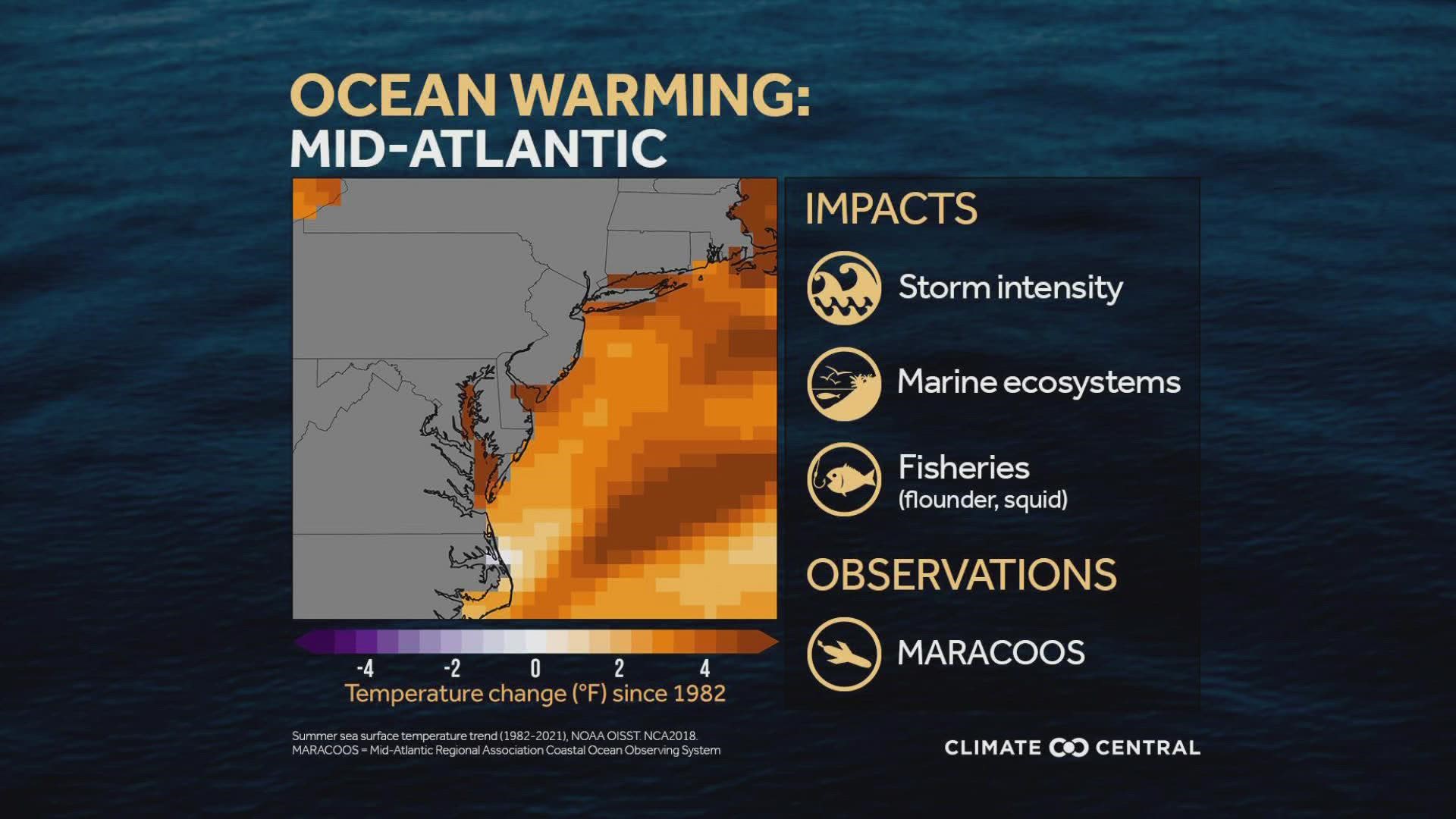WASHINGTON — More than 90% of the excess heat trapped on Earth ends up in our oceans. This is resulting in significant warming trends in oceans, lakes, rivers and streams all across the world.
Climate Central just released new data showing that summer sea surface temperatures have warmed in nearly all major US ocean regions from 1982 to 2021. With extraordinary rates of warming in Alaska and the northeast.

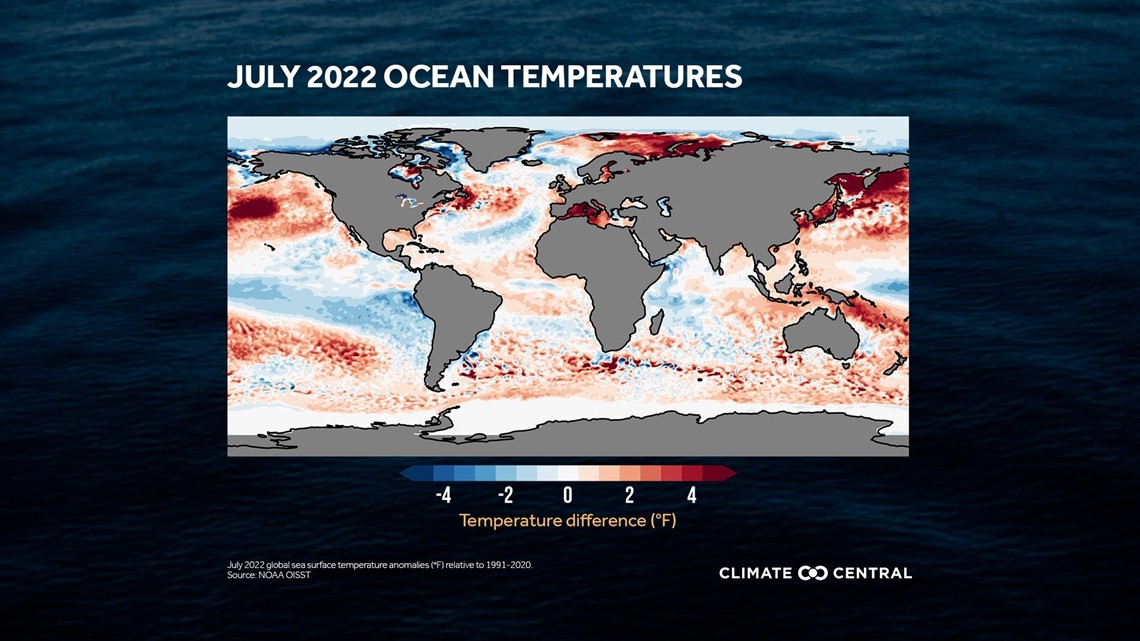

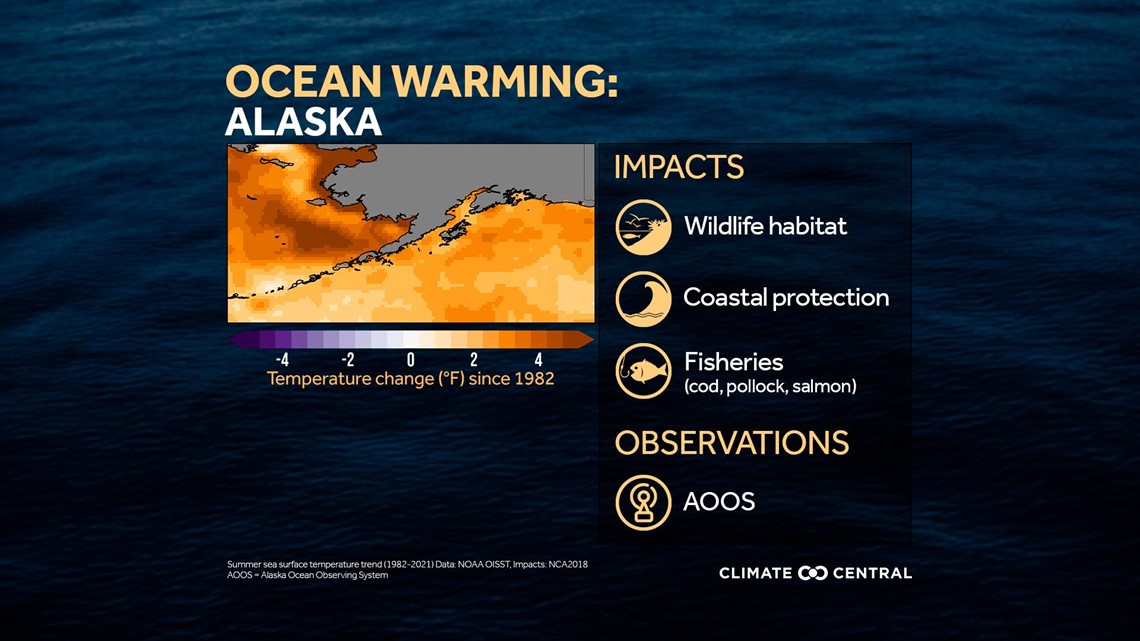

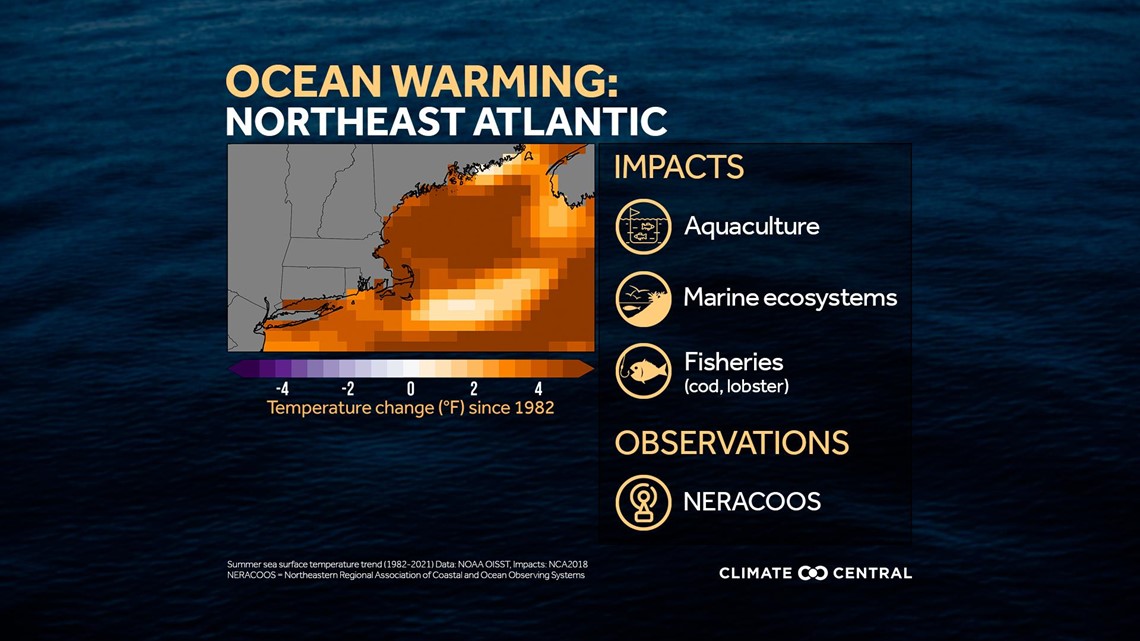
Just offshore from our Mid-Atlantic beaches, sea surface temperatures have risen anywhere from 2-4 degrees.

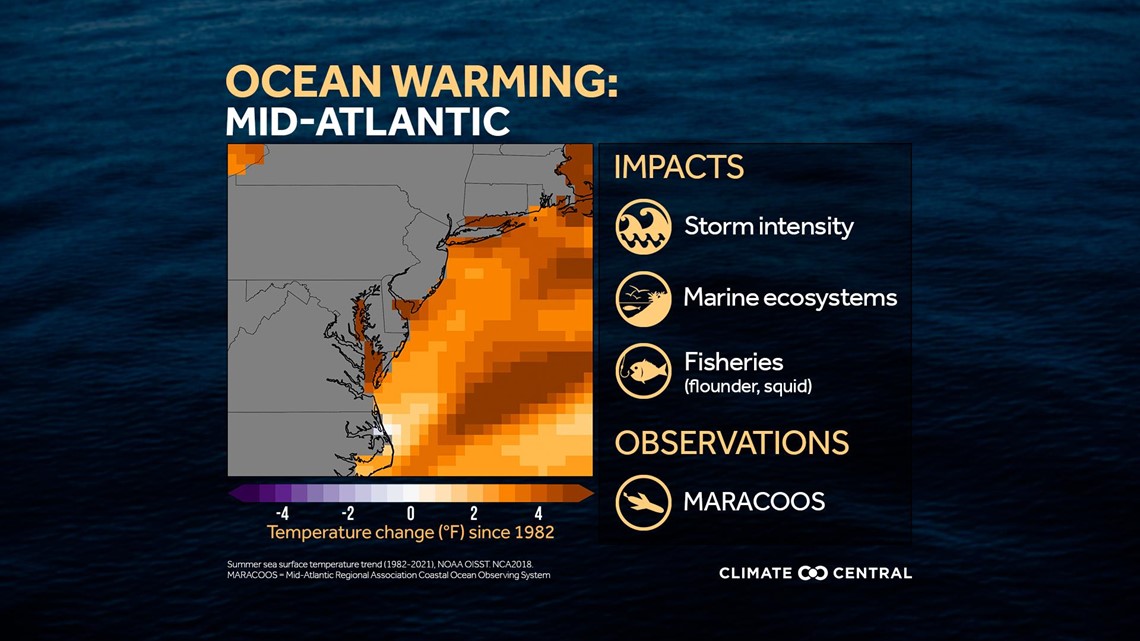
A recent study in the Journal of the American Water Resources Association showed that the Chesapeake Bay summer sea surface temperature is rising nearly twice as fast as global ocean surface temperatures.
This makes sense because while the Bay is beautiful, it’s very shallow, surrounded by warmer land, and doesn’t have currents that move water the way oceans do.
Beth McGee, the Director of Science and Agricultural Policy at the Chesapeake Bay Foundation explains how the warming water is actually impacting the amount of oxygen aquatic life relies on the Bay.
“The main problem we’re trying to fix in the Chesapeake Bay is dissolved oxygen," says McGee. "Like us, fish and crabs that live in the Bay need dissolved oxygen and the warmer water actually holds less oxygen. So that in and of itself is bad news. It could mean that what we call the dead zones. The area of the bay each summer that doesn’t have enough oxygen to support aquatic life.”
Warming water is also putting stress on species in the Bay and threatening their well-being. Eelgrass is especially at risk when it comes to temperature variability and acts as a food source for migratory waterfowls and provides habitat for icon Maryland blue crabs.

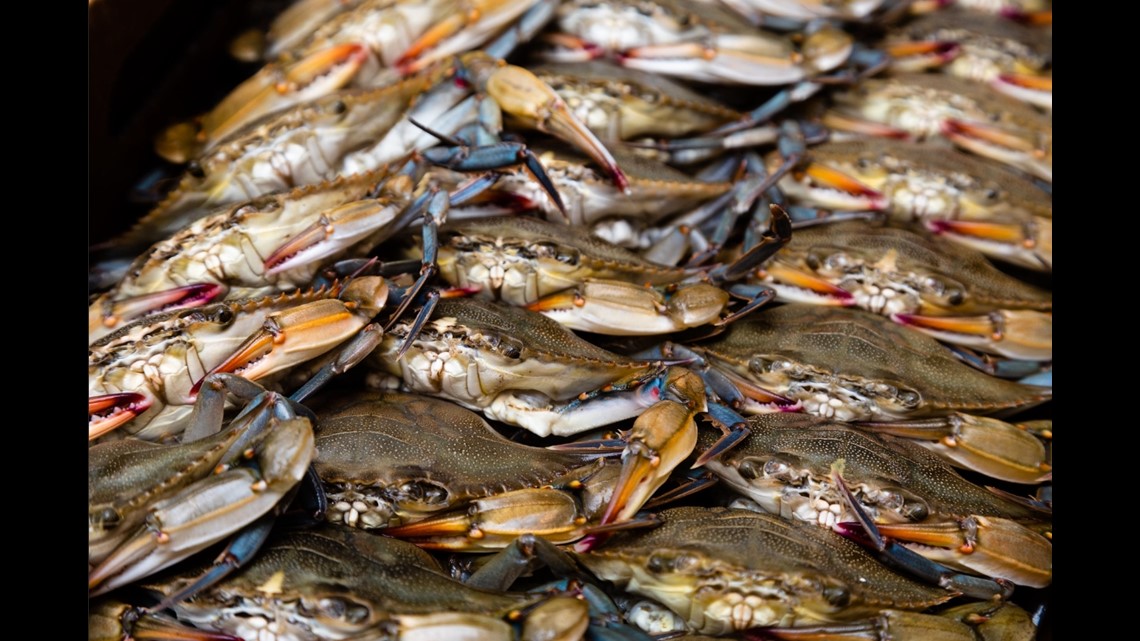
You can watch the full interview with Beth here.

